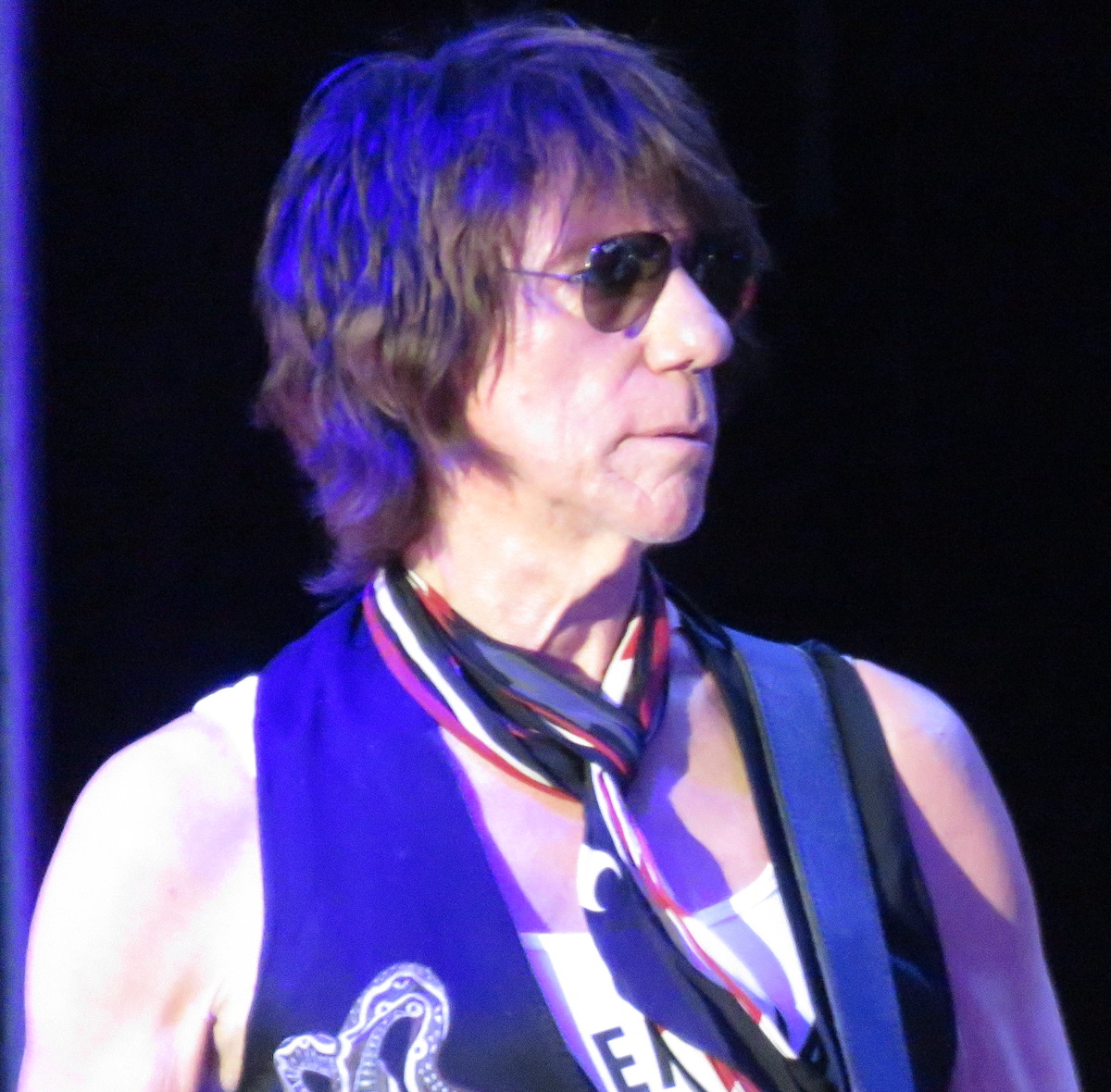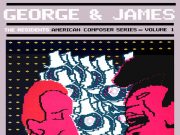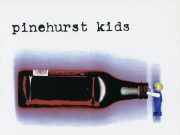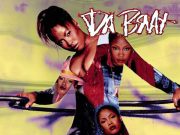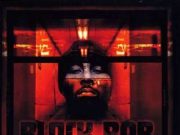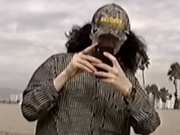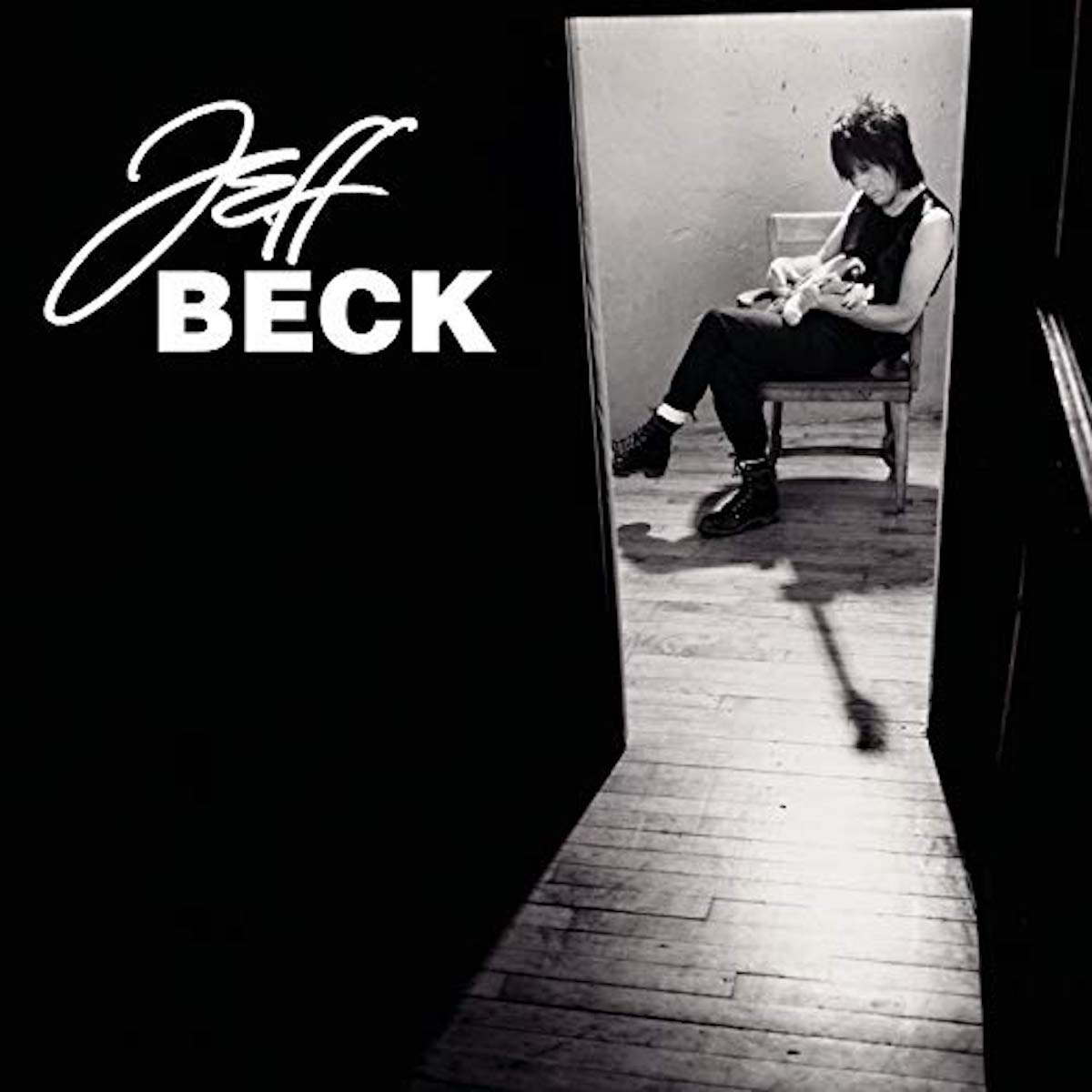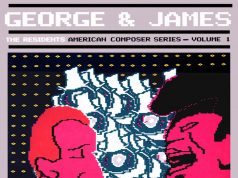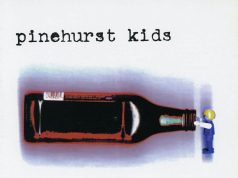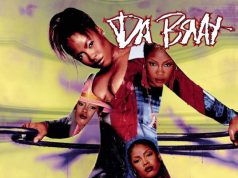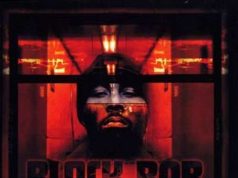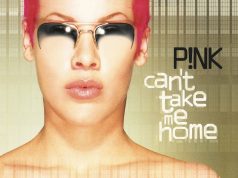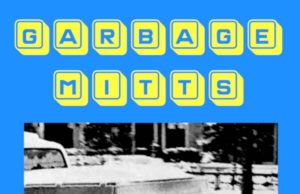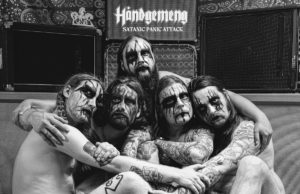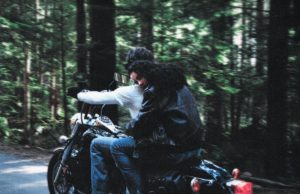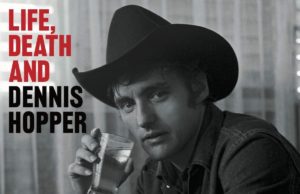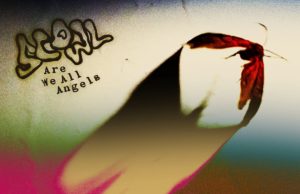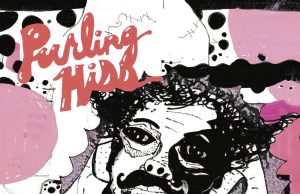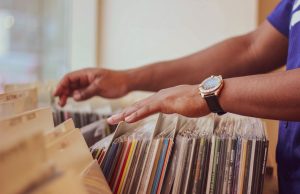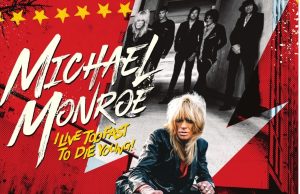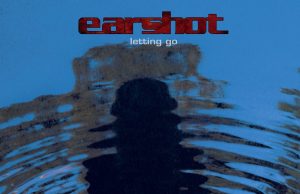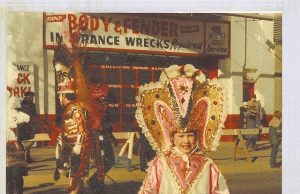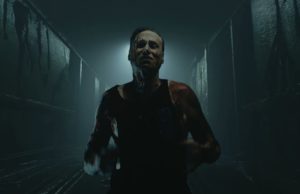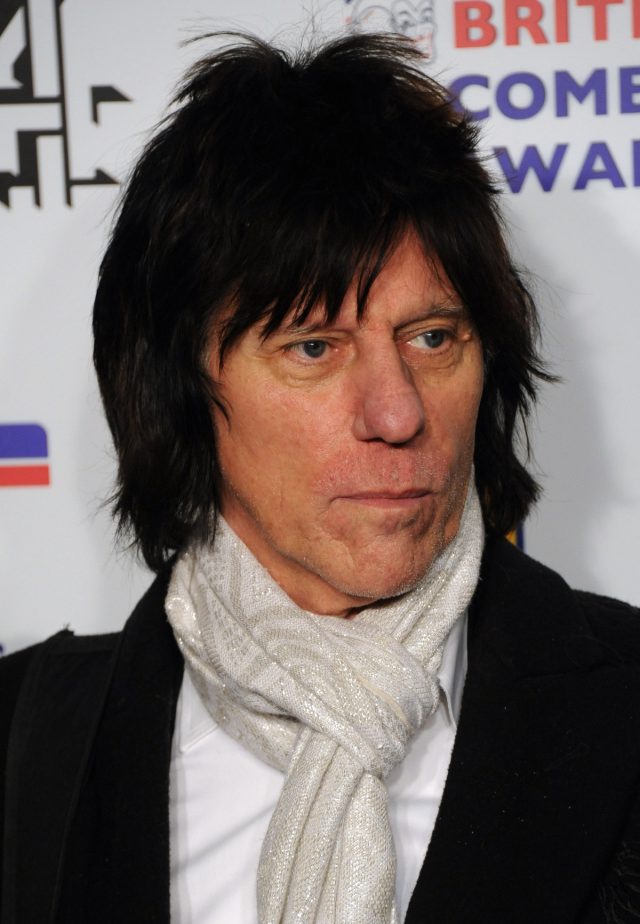
In a world of copycats and clones, Jeff Beck was a true original. Indisputably one of the greatest guitars in rock, the maverick musician played what he wanted, when he wanted, how he wanted and with whom he wanted. And never gave a shit about what anybody else thought while he did it. I didn’t love all of his albums, but I always respected him for his unabashed individualism and undeniable talent. So like millions of fans, I was shocked and saddened to read that he died Jan. 10 at age 78 after recently contracting viral meningitis.
Naturally, I saw Beck several times over the years. The most memorable occasion was undoubtedly when I watched him, his band and singer Imelda May rehearse before their appearance at the 2010 Grammy Awards. While stagehands and TV techs bustled about between songs, Beck and the band started to jam — if memory serves, they even launched into Train Kept A-Rollin’ at one point, taking a few hundred people in Staples Center on a quick trip back to his early days in The Yardbirds.
I was also fortunate enough to interview the forthright guitarist a couple of times — once in 1999, when he had just released Who Else!, his first album in 10 years, and again shortly after that Grammy night in 2010, when he and May were releasing the live album and DVD Rock ‘n’ Roll Party Honoring Les Paul, and he was trying to kickstart a new album with Rod Stewart. The transcripts of both interviews are below. RIP JB.
2010
Jeff Beck is returning to his roots — in more ways than one. And he’s taking Rod Stewart along with him. The 66-year-old guitar hero says he and his former Jeff Beck Group frontman have slowly begun working on their first album in more than 40 years. Emphasis on slowly.
“I just spent a week doing demos for him — and was promptly told they were in the wrong key, so we’re back to Square 1,” laughs Beck down the line from London. “And Rod’s just had another child, so we have to wait for him to be free. But we’re working on it.
“We want this to be the best album that both of us have ever made. But we only want to do it if it’s great. We’re not going to release anything that doesn’t meet our standards. We want to revisit the spirit that was in those two albums that I did with Rod, and I sense this is probably a good time to do it, to let the world know that we started it all,” he chuckles.
But the hot-rodder isn’t just spinning his wheels while he waits for Stewart to reconnect with the young turk of Truth and Beck-Ola. His latest release is an equally nostalgic affair of a different stripe: The live CD and DVD Rock ’n’ Roll Party Honoring Les Paul. Featuring rockabilly revivalist Imelda May on vocals — and recorded on what would have been Paul’s 95th birthday at the New York jazz club where he played weekly — the album is a joyous tribute to the late guitar legend and inventor, who was a friend of Beck as well as one of his mentors.
Fresh from scoring a trio of Grammys — and delivering the coolest acceptance of the festivities: “Thank you. That’s it. Shit speech.” — the affable but straightforward Beck shared his thoughts on Paul’s impact, Gene Vincent’s fashion sense and hairy armpits.
Congrats on the new Grammys. How does it feel to finally break out of the rock instrumental ghetto after five awards — and into the pop instrumental ghetto?
It was amazing. I understand the only person other than me to win both categories was Les Paul.
How timely. I talk to a lot guitarists in this racket, and almost all of them say you’re God. But what does that make Les Paul?
Er, an underdog, I suppose. Serves him right; he shouldn’t have been so good.
Is he your go-to guy?
Not necessarily. It’s just that he was there when I was really small. He was the kernel that grew into the tree, as it were. Later, you find out people like Django Reinhardt were there before Les. But Les was so pivotal in electric guitar playing. He’s the guy that put it on the map. No question. And he understood everything about sounds and recording and circuits and valves and all that. There wasn’t much he didn’t know. And he also knew how to make you laugh.
How did the tribute show come about and take shape? Did it grow out of your Grammys appearance with Imelda May?
I think it was already in the works. we had already done a one-off show with Imelda’s band just for the hell of it. Somebody said, ‘Why don’t we just do the whole thing?’ I always wanted to do a tribute — not necessarily with a vocalist. I was planning on doing a whole evening of instrumentals. But when Imelda appeared on the scene, it would be silly not to do the Jeff, Les and Imelda Paul sort of thing. She did it so well. That’s really what spurred me on to do the whole thing, was when she did the multi-track of How High The Moon. After that it was obvious.
In the show, you don’t just play Les’s songs and licks; you play them in his style. Did that take a lot of practice?
No. Part of the upside of this whole project was the enjoyment of being able to play those solos, which I slavishly learned when I was about 14 and first got a guitar — a proper professional guitar, not a hollowed-out log. I just spent hours listening and learning, but never was able to apply those solos in the songs of the time. So this was a golden opportunity in 2010. I think he would have enjoyed it.
It’s also a tribute to some of your other early rockabilly heroes like Cliff Gallup, Scotty Moore, Paul Burlison and Hank Marvin. How do you see them fitting in with Les?
We just didn’t think it was a good idea to do a whole evening of Les Paul hits without bringing in some others who were clearly affected, if not by his style, his sound. So even the non-Les Paul tracks were clearly in keeping. It was a party for Les, but I wanted people to enjoy the whole spectrum of rock ’n’ roll from that era. And no one complained.
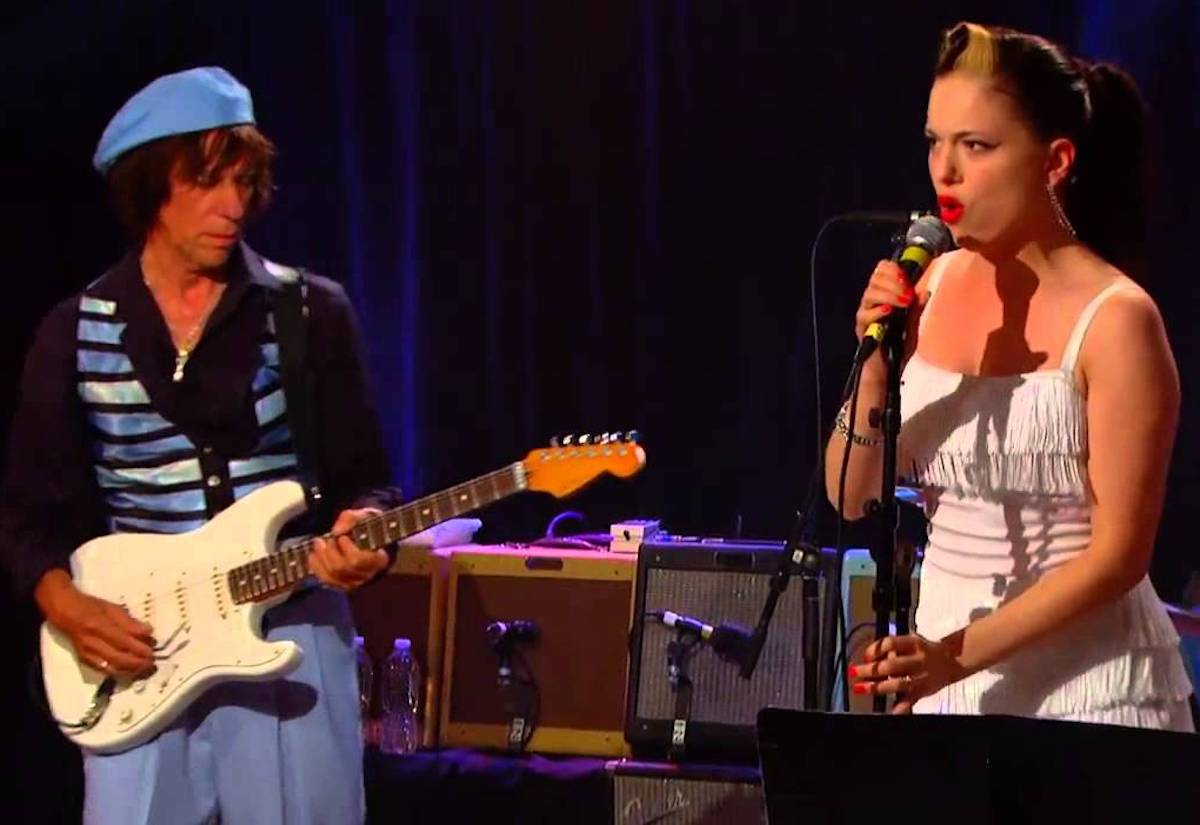
Even your clothes were a perfect reproduction of an old Gene Vincent outfit from The Girl Can’t Help It, right down to the blue cap. Where did you get that?
I’ve got a very nice lady that makes my clothes. I knew I would be playing with guys that looked like they walked out of the ’50s, so I had to have something. And I thought the most iconic rock ’n’ roll shirt I’ve ever seen is that Gene Vincent one. So I said, ‘I’ll have that.’
And thank you for including The Treniers’ song Rocking Is Our Business. Did you pick that up from The Girl Can’t Help It?
Yeah. I saw that just recently again. And that song — although it never escaped me when I first saw it, it kind of got left behind because I kept rewinding the Vincent clip all the time. Then when you hear Rocking Is Our Business, it’s an amazing song.
Are you going to tour with this show?
We’re doing 11 gigs in America in out-of-the-way places. We’re going into the hot-rod underground. In California especially, there’s a whole car and rockabilly culture we hope will come. They’re all in smaller theatres, because you can enjoy the music better. We probably would tour a lot more, but Imelda’s very busy. She’s doing very well in her own right. It’s her bloody fault.
This is one of the strangest questions I’ve ever asked anyone, but I notice you often play sleeveless and when you raise your arms, it looks pretty smooth there. Do you shave your armpits?
No, I don’t. I do hate hairy armpits, but I don’t do that. So why have I got such fabulous hair, but don’t have hairy armpits? It’s a medical phenomenon. Now, I think we should get off this topic as quickly as possible (laughs).
1999
Where are you?
Golly … Syracuse.
Is the title Who Else! a reference to the other Beck?
It was a bit. But there were other reasons. Unfortunately, we couldn’t use the full title. I’ll leave that to your imagination. There was an obvious ommission in the middle. They wouldn’t let me have that, so it just was shortened. And right at the 11th hour, it didn’t sound too bad compared with all the rest of the ridiculous names we came up with.
What were some of those?
Oh, I can’t remember now. It’s not a night that I care to remember.
It’s been 10 years since the last original rock album you put out. Why so long?
I don’t know. I put a lot into the last album and it didn’t do much, and then the band folded, so I thought that would probably be the end of me. And then whole waves of new bands came in. And you know, one reflects and delves into the inner spirit and thinks, well, is there any point in carrying on really if that’s what you get for doing so much work on a record. You’ve just got to keep grinding away. I think it was mostly the fact that the band broke up — the two others were busy doing other things.
And what did you spend your time doing?
Well, loads of things. I live a life; I don’t just sit there playing a guitar all day long. I’ve got a fully equipped workshop at home with machinery and stuff. I work on cars. Restoring and building, designing and house restoration, garden, you name it … animals. I was never just sitting around.
What inspired you to get back in the business?
I’ve always kept my finger in the water sorta thing with movie stuff, which you can do underground without much profile. But I wasn’t very happy doing it. I did loads of different bits for movies and soundtracks. I did get a BAFTA Award, which is quite a recognition in England. And then the work started flooding in because of that, and I didn’t like the idea of being banged up in the studio for the rest of my life. So I think the panic and the prospect of that helped me get into the real world of live playing, which is where I belong. But you have no idea how difficult it is to syncrhronize stuff. You get people who want to do the job, but they can’t because they’re already signed up. It’s just a long waiting game, you know.
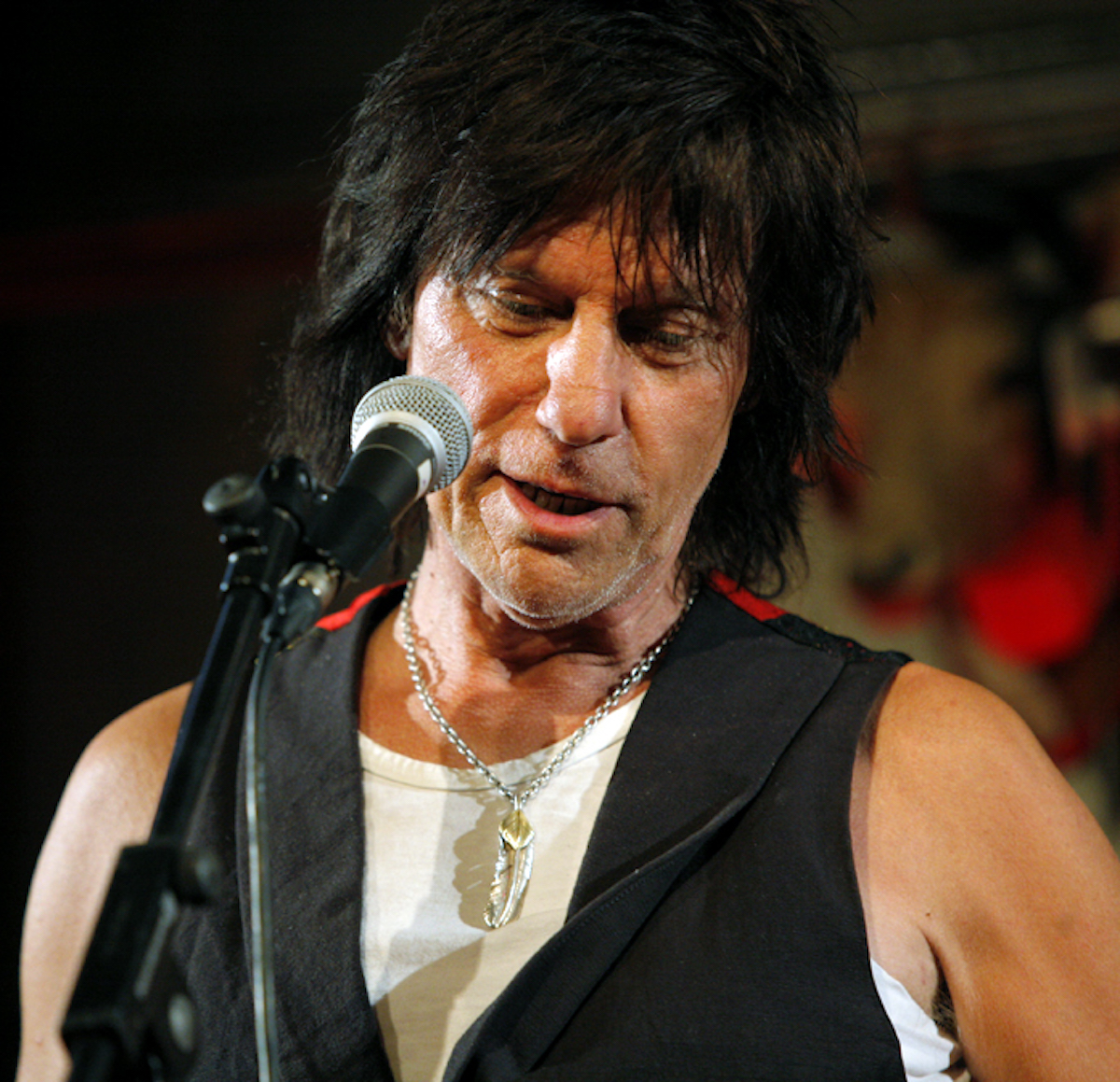
It seems you’re taking a lot of your inspiration from electronica.
From time to time I peek inside some of these weird clubs that we’ve got in London. It’s just like going to another planet — some of the sounds coming out that people don’t seem to be fazed by, which would have sent me running for miles at one time. I’ve had to realize that’s what people have become accustomed to — heavy beats with very little else.
You make it sound like you’re not particularly enamored with it.
No, I don’t like stuff that purports to be music which isn’t and gets jumbled up in some kind of mixing machine and comes out on general radio and other media as being music, and it’s just a very scanty melody and no melody at all, and a techno beat that really sickens me. But you get things like Prodigy and Propellerheads, they’re doing stuff with it. And I suddenly heard my guitar welded on top of that stuff, and thought, ‘Hey! That’s a way to do something. That’s a way back in the business again.’ But I still wanted to use a real drummer. I’m never, ever going to say goodbye to real drums because of the instantaneous interaction cannot be achieved by a programmer playing a machine.
It’s not as if you’ve suddenly taken on a huge interest in electronic music.
Actually, I’ve been interested in it for a long time. Right from the ’60s, when Jimmy Page and I used to sit and listen to electronic music. It was somewhat shapeless in those days, without any sort of shape to it. People hardly knew what to do with the newfound discovery. But people like Jan Hammer have put it well and truly on the map. I’m really glad I was associated with him at the time.
Do you hear new possibilities in the music? Because a lot of your contemporaries really disdain it.
It’s easy to have a one-track mind on how music should be, but music is nothing more than sound. And we react to sound, no matter who makes it. Whether it’s Stomp with their brushes and tin cans, or whether it’s the most sophisticated machine in the world, it’s what sound can do for you personally. And I think if anybody wants to put boundaries onto people’s perception of sound, then we might as well forget about it, you know. I don’t think there should be any rules and regulations, we should be entitled to listen to whatever we want. At the risk of breaking a few hearts and rules along the way.
How are the longtime fans responding to the new album?
All we have to go by as a guide is how people react at the concerts, and it’s bee great. We’ve only had one or two out of the last two American tours that didn’t match up to the rest. But audiences are audiences. Most of them go bananas at the end and that’s what you want.
Why do you think your fans are so loyal?
That’s a tough question. I could take a guess and say that the interest is there because I’m not overexposed. Maybe it has something to do with being out of the picture that makes it more mysterious perhaps, I don’t know. Or maybe they just liked what I did before, and that opened up a door that is open still.
This is a fairly extensive tour for you.
Yeah (laughs). You don’t even want to see the mileage we’re doing on the bus. We’re all suffering from neck ache.
Is it tough to keep the material fresh on such a long journey?
That’s another beauty (laughs). Yeah, we tend to go through moods, because we’ve got a fixed show that would be difficult to alter to any great extent. The band does respond to my moods as well. If I’ve not on top of it, it can get very difficult keeping the freshness. But the material, the actual set for me as a guitarist, is a roller-coaster. I don’t get one second where I can sit around and do nothing. I just mop myself off and go again.
What classic material are you doing?
We’re doing a little medley of some stuff from Beck-Ola. I don’t want to say exactly what it is — it’s just little cheeky hints of what I used to do.
Are you the kind of guy who gets bored easily?
Yes (laughs).
So when you’re playing a fixed show like this, what can you do?
Not much. The thing is, any alterations are major things. You can’t do it 10 minutes before the show. In order to give me different spaces or give different vibes to the tunes, the musicians have to dial in new sounds. We’re living in that sort of world now — programming and such. There aren’t many bands that don’t have it. Even ZZ Top, and they still sound great. And if they sound much better than they would without it, so be it.
Do you miss the old days?
Yep, I do. But I don’t know how one would make any forward motion. Just to have the sonic presence of rhythm, it has to come from machinery, I’m afraid. They haven’t designed a drum kit that sounds up to scratch in modern music. Most drummers I hear, they sound like something I’ve heard. But if you use a drummer in tandem with the machinery, then you have a very exciting, volatile combination.
Speaking of forward motion, where do you think your music is heading?
Well, we’ve got a blank sheet of paper now. We’ve had very good response to this record — perhaps a little bit more than it deserves. But if it had been a massive hit and gone top 10, I really wouldn’t know what to do. I would be very hard-pressed to come up with something along the lines of this last record and make a logical progression from it. But it’s done enough — made enough ripples in the waters to let me know what people do like without it becoming overbearing to me and being too much responsibility. So I still feel I can do something else completely different from that. What we’re going to do it sit and write as a band. We’re going to spend some time on these 800-mile journeys writing.
How long are you on the road?
Till Oct. 1. Then we go back to England for two concerts there. And then that’s it until Christmas. If you count the pre-tour, the promotional tour that started in March, it is the longest tour I’ve done in a long time. But we did take a break for some of the summer so we could get our heads back together. It was probably the worst thing we did. We thought ‘OK, we know this show.’ And when we went back, we couldn’t remember anything. You’ve only got to make one slip and that puts all the timing out on all the loops and stuff.
So it’s not going to be another 10 years before we see a new album.
No, I don’t think so. I’ve seen such favourable reaction. And what’s most encouraging is some super-young people are coming. I’ve seen some 10 year olds in the audience — obviously brought by their parents, but it’s very healthy for me. As regards some campaign to keep the thing going or not, that’s beyond my control. All I can do is keep playing and make CDs.
You sound as if you’d be just as happy to go back to your garage.
I don’t know. It’s all about balance in life. I have to earn some time down to do that. I don’t really enjoy building cars when I know that there’s something else on the musical horizon. Music’s the most important thing, because without that I wouldn’t have any cars or the material things that I occupy my time with. So I’ve got to keep the things in balance and not overdo any of it.
